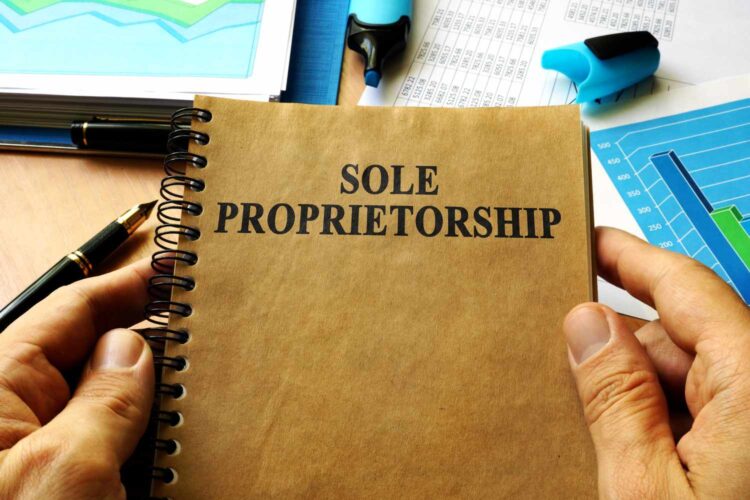The retail industry went through a slump when the pandemic hit in 2020. Now that the pandemic is over, it is growing steadily and is expected to grow even further in the coming years.
Arranging the finances to start your own retail business takes a lot of work. But there are other legal requirements that you need to consider before starting your business.
Some of these legal requirements are:
- Choosing the right business entity
- Registering the business name
- Getting an EIN
- Obtaining the necessary permits and licenses
- Preparing to pay state and federal taxes
If you are worried about which business entity to choose, let us help you out.
Here are the most popular business entities for a retail business along with their pros and cons.
Page Contents
Sole Proprietorship

Source: investopedia.com
Want to start out small? Then a Sole Proprietorship could be the right choice for you.
A Sole Proprietorship is basically an unincorporated business run by an individual. There is no distinction between the owner and the business.
As the owner of your retail business, you will be entitled to all the profits, but at the same time, you will be responsible for all the losses, liabilities, or debts.
Pros
- Easy to form
- Less paperwork
- No corporate taxes
Cons
- No liability protection
- Difficult to get funding
- Not ideal for business expansion
Limited Liability Company (LLC)

Source: startups.com
An LLC is a separate legal entity. This means that you, as the owner, are not personally liable for your company’s debts or liabilities.
In case of a legal dispute, your personal assets—such as your home, cars, and bank accounts—are not viewed as the company’s assets and are not at risk.
Pros
- Tax liability passes through to your personal tax returns
- Fairly easy to maintain
- Protects your personal assets
Cons
- Need to pay additional taxes like LLC taxes and self-employment taxes
- Not as easy to raise funding for and expand, as a Corporation
- Requires more paperwork than a Sole Proprietorship
Corporations

Source: inc.com
A Corporation is one of the most well-structured business entities for a retail business. It offers the best liability protection but it also requires extensive paperwork.
Setting up a Corporation is also quite expensive, and may not be a great choice if you want to start a freelance business.
Pros
- Personal Liability Protection
- Easier access to capital
- Business security and continuity
Cons
- High formation costs
- Need to pay corporate taxes
- Rigid formalities and protocols
For more information on the right business entity for your retail business, check out the infographic below.

Conclusion
The key takeaway from this review is that there are a variety of business entities available for retail businesses in 2024, meaning that entrepreneurs should explore their options thoroughly to ensure that they find the best solution for their particular venture. Each entity comes with its own unique set of advantages and disadvantages, so it is important for small business owners to understand each entity before making any decision.
Furthermore, there may also be other available options depending on the location or type of retail business – it is always wise to seek counsel from experienced professionals who can help clarify any questions entrepreneurs may have. As always, ambitious entrepreneurs should be aware of potential pitfalls when choosing a business entity – it pays to do your research!





